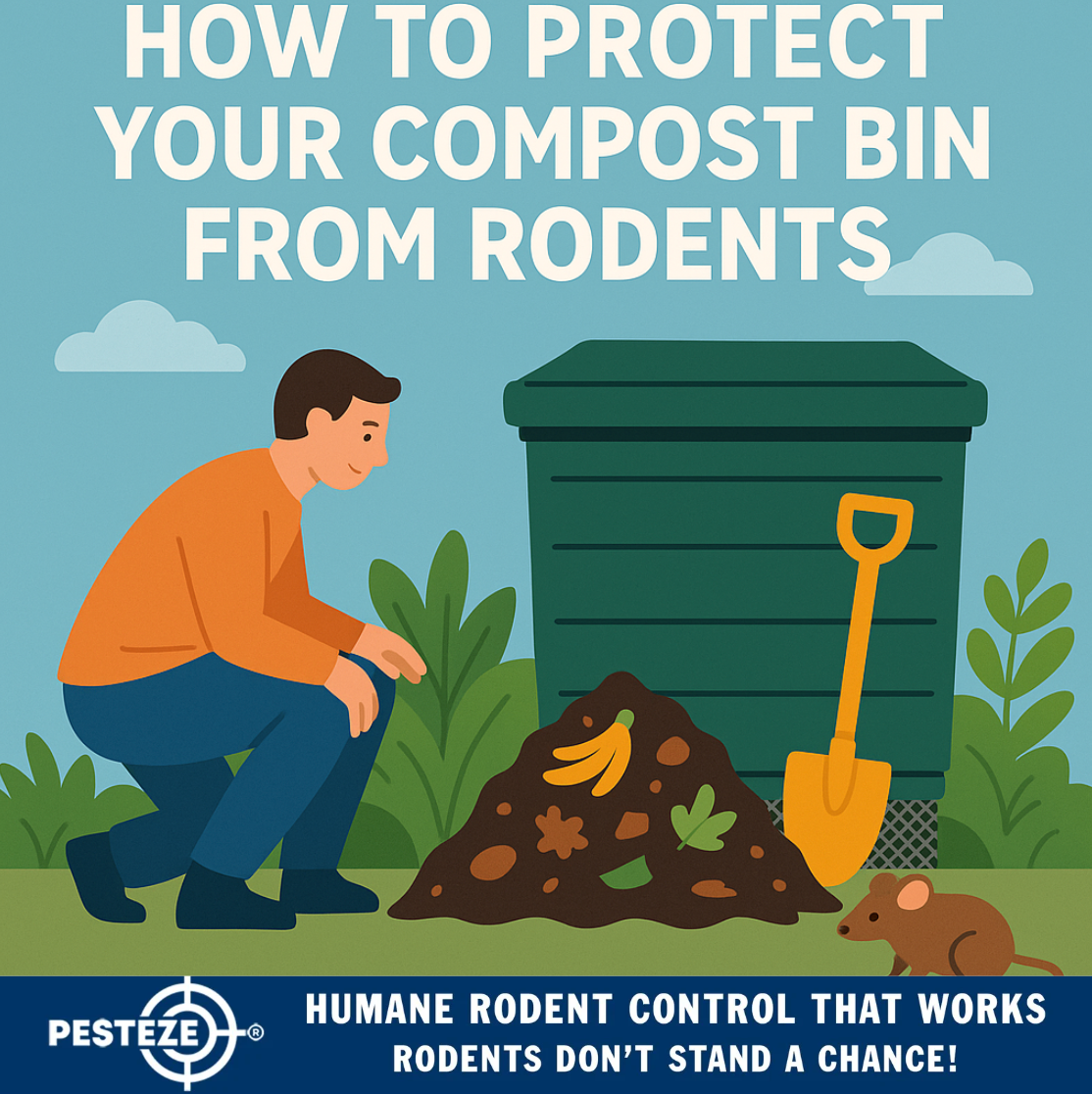HOW TO PROTECT YOUR COMPOST BIN FROM RODENTS

HOW TO PROTECT YOUR COMPOST BIN FROM RODENTS
SUMMARY
Rodents are attracted to compost bins for food, warmth, and nesting. Protecting your compost from pests keeps it healthy, odor-free, and safe to use in gardens. Learn simple, eco-friendly strategies to keep rodents away without disrupting the composting process.
FEATURES
-
Rodent-Proof Bin: Choose sealed, durable bins with tight-fitting lids.
-
Proper Placement: Keep bins elevated and away from fences or walls.
-
Balanced Compost: Mix greens and browns to reduce strong odors.
-
No Food Waste: Avoid meat, dairy, and oily foods that attract rodents.
-
Mesh Barriers: Add wire mesh underneath and around bins.
-
Routine Maintenance: Turn and inspect compost regularly for activity.
DESCRIPTION
Composting is a great way to recycle organic waste, but an unprotected bin can quickly become a haven for rodents. The warmth, moisture, and food scraps inside create an ideal nesting environment for mice and rats. By following a few practical steps, you can keep your compost rodent-free and thriving.
Start with the right compost bin. Choose one made of heavy-duty plastic or metal with a tight-fitting, lockable lid. Open-style compost heaps are more likely to attract rodents, while enclosed bins limit access and retain heat for faster decomposition. If possible, elevate the bin on a concrete slab or pavers to remove soil contact, making it harder for rodents to burrow inside.
Location matters. Place the compost bin away from fences, sheds, or walls—structures that rodents can climb to access the lid. A sunny spot with good air circulation helps keep the compost dry, reducing the appeal for nesting.
Maintain a balanced compost mix. Strong smells attract rodents, so layer green materials (like fruit and vegetable scraps) with brown materials (like leaves or paper) to balance moisture and odor. Cover food scraps with a layer of soil or dry leaves to neutralize smells.
Never add meat, fish, dairy, or greasy foods to compost. These decay slowly and emit strong odors that are irresistible to rodents. Stick to plant-based kitchen waste, coffee grounds, and eggshells instead.
For added protection, install fine wire mesh or hardware cloth under and around your bin. This barrier prevents rodents from digging underneath while still allowing worms and beneficial microbes to thrive.
Finally, perform routine compost maintenance. Turn the pile every one to two weeks to disrupt any nesting attempts and keep oxygen circulating. Inspect for signs of rodent activity—such as tunnels or droppings—and take corrective action immediately.
With secure bin design, proper composting habits, and regular upkeep, you can enjoy nutrient-rich compost without attracting unwanted rodents to your garden.
- Saharsh Bansal


Comments 0